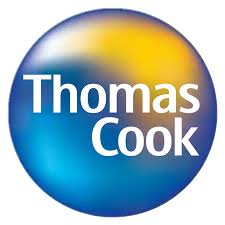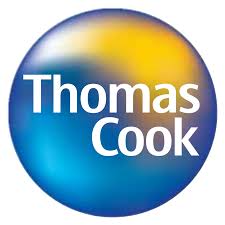
Travel firm Thomas Cook has sought the help of the United Kingdom government for a bailout package as the company is desperately trying to avoid a collapse after threats from its lenders about not supporting a proposed deal for merger with a Chinese firm, according to a report published in the Financial Times.
The report quoted sources saying that the company was in talks with “multiple” potential investors which included the UK government as on Friday. The company is seeking a package worth about £200m which would be used to serve a demand from its banks for additional cash which would be part of a recapitalization bid worth £1.1bn.
While a decision by the UK government to bail out the company would lead to a huge controversy, the government on the other hand would be saved from spending hundreds of millions for return of an expected 150,000 stranded UK who would be stranded in foreign land in the case of the collapse of Thomas Cook. The company would collapse and go into administration if it is unable to raise the money which would mean that the UK government would have to conduct the biggest ever peacetime repatriation.
A contingency plan known as Operation Matterhorn for bringing home stranded holiday makers has been drawn up and the Civil Aviation Authority is on standby, said the FT report quoting sources.
The UK government would have to shell out as much of taxpayers’ money, it f not more, to bring home stranded British tourists in the eventuality of Thomas Cook going into administration, said the report quoting sources.
It is also expected that there would be a significant knock-on impact across the travel industry by the collapse of Thomas Cook because the company closely works with over 3,000 hoteliers around the world and the range of creditors of the company would be large – from fuel and aviation services providers to credit card companies and the landlords.
“It would be an absolute bloodbath,” said the report quoting one person close to the restructuring talks.
There is little chance of a deal according to the people close to the discussions, the FT report claimed. In the past few days, there has been a significant hit in confidence on the company among both customers and suppliers which has increased pressure on the company.
“The longer it takes to do this complex deal, the more the clock is ticking and the more business walks out of the door. Soon there will not be much to save,” said the FT report quoting the source.
“If Thomas Cook goes into administration it will cost the taxpayer as much to repatriate holidaymakers as it would cost to save Thomas Cook”, said Brian Strutton, general secretary of the pilots’ union Balpa.
Thomas Cook had been depending on a rescue package of £900m which would have resulted in its tour operating business being virtually taken over by its majority shareholder, the Chinese conglomerate Fosun, and it would also have made the Chinese company a minority stakeholder in the airline business against a capital of £450m. The company had also planned to generate the remaining £450m by approaching its lenders and debtholders who would have in turn become the controllers of its airline business along with a minority stake in the tour operator.
(Source:www.ft.com)
The report quoted sources saying that the company was in talks with “multiple” potential investors which included the UK government as on Friday. The company is seeking a package worth about £200m which would be used to serve a demand from its banks for additional cash which would be part of a recapitalization bid worth £1.1bn.
While a decision by the UK government to bail out the company would lead to a huge controversy, the government on the other hand would be saved from spending hundreds of millions for return of an expected 150,000 stranded UK who would be stranded in foreign land in the case of the collapse of Thomas Cook. The company would collapse and go into administration if it is unable to raise the money which would mean that the UK government would have to conduct the biggest ever peacetime repatriation.
A contingency plan known as Operation Matterhorn for bringing home stranded holiday makers has been drawn up and the Civil Aviation Authority is on standby, said the FT report quoting sources.
The UK government would have to shell out as much of taxpayers’ money, it f not more, to bring home stranded British tourists in the eventuality of Thomas Cook going into administration, said the report quoting sources.
It is also expected that there would be a significant knock-on impact across the travel industry by the collapse of Thomas Cook because the company closely works with over 3,000 hoteliers around the world and the range of creditors of the company would be large – from fuel and aviation services providers to credit card companies and the landlords.
“It would be an absolute bloodbath,” said the report quoting one person close to the restructuring talks.
There is little chance of a deal according to the people close to the discussions, the FT report claimed. In the past few days, there has been a significant hit in confidence on the company among both customers and suppliers which has increased pressure on the company.
“The longer it takes to do this complex deal, the more the clock is ticking and the more business walks out of the door. Soon there will not be much to save,” said the FT report quoting the source.
“If Thomas Cook goes into administration it will cost the taxpayer as much to repatriate holidaymakers as it would cost to save Thomas Cook”, said Brian Strutton, general secretary of the pilots’ union Balpa.
Thomas Cook had been depending on a rescue package of £900m which would have resulted in its tour operating business being virtually taken over by its majority shareholder, the Chinese conglomerate Fosun, and it would also have made the Chinese company a minority stakeholder in the airline business against a capital of £450m. The company had also planned to generate the remaining £450m by approaching its lenders and debtholders who would have in turn become the controllers of its airline business along with a minority stake in the tour operator.
(Source:www.ft.com)














